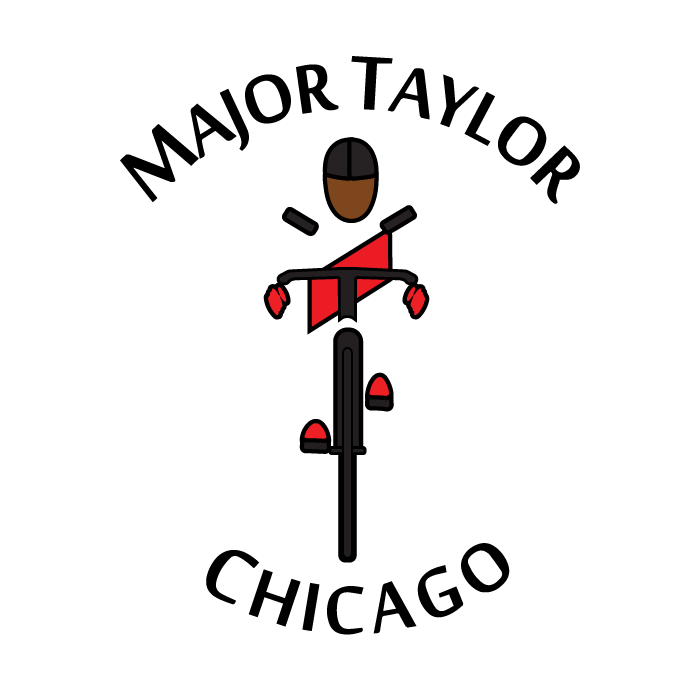Your cart is currently empty!

Top 10 Cyclist Off-Season Recovery Techniques
—
by
- Embrace Active Recovery
- Incorporate Yoga and Stretching
- Prioritize Quality Sleep
- Balanced Nutrition for Recovery
- Stay Hydrated
- Foam Rolling and Massage
- Take a Mental Break
- Explore Cross-Training
- Set Goals for the Upcoming Season
- Regular Health Check-ups
Understanding the critical phase of off-season recovery is essential for every cyclist. It’s a time not just for physical rest but also for mental rejuvenation. This article delves into the top 10 techniques for effective cyclist off-season recovery.
1. Embrace Active Recovery
Embracing active recovery during the off-season is vital for cyclists to maintain fitness while allowing the body to recuperate. Engage in low-impact activities like swimming, walking, or light jogging, which help maintain cardiovascular fitness without overexertion. These activities promote blood circulation, aiding in muscle recovery and reducing stiffness. Incorporating activities like Pilates or light gym workouts can also help maintain muscle tone and prevent the loss of fitness gains. It’s important to listen to your body and keep the intensity moderate; the goal is to stay active and mobile, not to intensify training. Active recovery is a balance between rest and activity, crucial for preparing your body and mind for the upcoming cycling season.
2. Incorporate Yoga and Stretching
Incorporating yoga and stretching into your off-season routine is a fantastic way for cyclists to enhance recovery and prepare for the upcoming season. Yoga offers a dual benefit of improving flexibility and reducing muscle tightness, which are crucial after long cycling seasons. It also helps in strengthening core muscles, enhancing balance, and improving overall body alignment, all of which are essential for cycling efficiency. Additionally, yoga’s focus on breathwork and mindfulness can aid in mental relaxation and stress reduction.
For stretching, regular sessions focusing on key muscle groups used in cycling, such as the hamstrings, quadriceps, calves, and back, can prevent stiffness and maintain muscle elasticity. Integrating a mix of dynamic stretches before workouts and static stretches post-workout can ensure optimal muscle recovery. By dedicating time to yoga and stretching, cyclists can not only recover more effectively but also enhance their performance for when they get back on the bike.
I’m a huge advocate of the stretching band; I own one and find it incredibly effective.
3. Prioritize Quality Sleep
Prioritizing quality sleep is crucial for cyclists during the off-season for optimal recovery and rejuvenation. Aim for 7-9 hours of uninterrupted sleep each night, as this is when the body undergoes the most significant repair and recovery processes. Create a restful sleeping environment, free from distractions like electronic devices, and maintain a consistent sleep schedule, even on non-training days. Incorporating relaxation techniques such as reading or meditating before bed can improve sleep quality. Additionally, monitoring sleep patterns with a fitness tracker can provide insights into your sleep quality, helping you make necessary adjustments for better rest. Remember, good sleep is as vital as physical training for a cyclist’s recovery and overall well-being.
4. Balanced Nutrition for Recovery
Balanced nutrition plays a pivotal role in a cyclist’s off-season recovery, aiding in muscle repair and overall health. Focus on a diet rich in proteins, healthy fats, and complex carbohydrates to replenish energy stores and facilitate muscle recovery. Incorporate a variety of fruits and vegetables to ensure a wide range of vitamins and minerals, crucial for bodily repair and immune system support. Stay hydrated and consider supplementing with vitamins and minerals if needed, especially those that support recovery, like Vitamin D and Omega-3 fatty acids. Avoid heavily processed foods and excessive sugar, as they can hinder the body’s natural recovery processes. Remember, what you eat in the off-season lays the foundation for your performance in the upcoming season.
5. Stay Hydrated
Staying hydrated is a key aspect of a cyclist’s off-season recovery, essential for optimal bodily function and muscle repair. Even in the off-season, it’s important to maintain a consistent hydration routine, as hydration aids in nutrient transport and toxin removal. Aim to drink at least 8-10 glasses of water daily, and increase intake if engaging in any physical activity. Incorporate hydrating foods like fruits and vegetables into your diet, which can also provide additional nutrients. Monitor the color of your urine as a simple indicator of hydration levels; a pale yellow color suggests proper hydration. Avoid excessive alcohol and caffeine, as they can lead to dehydration. Remember, hydration is not just for training days; it’s a daily requirement for maintaining good health and aiding recovery.
6. Foam Rolling and Massage
Foam rolling and massage are excellent techniques for aiding recovery in a cyclist’s off-season routine. Regular use of a foam roller can help alleviate muscle tightness and improve flexibility, targeting key areas like legs, back, and hips. It works by releasing muscle knots and increasing blood flow, which speeds up recovery. Incorporating professional massage therapy, if possible, can further enhance muscle relaxation and repair. Massage not only soothes sore muscles but also reduces stress and improves overall well-being. Cyclists should aim for at least a few sessions of foam rolling or massage each week to maximize the benefits. These techniques are especially useful after any off-season physical activities, ensuring muscles remain supple and ready for the next cycling season.
7. Take a Mental Break
Taking a mental break is crucial for a cyclist’s off-season recovery, offering essential respite from the rigors of training. Engage in activities that provide mental relaxation and enjoyment, such as reading, pursuing hobbies, or spending quality time with family and friends. These activities help reduce stress, refresh your mind, and prevent burnout. It’s also an opportunity to disconnect from the cycling routine, allowing you to return to training with renewed focus and enthusiasm. Incorporating mindfulness practices like meditation or yoga can further aid in mental rejuvenation, enhancing clarity and emotional well-being. Embracing this mental downtime is key to maintaining a healthy balance between cycling and personal life, ensuring you’re mentally prepared and motivated for the challenges of the upcoming season.
8. Explore Cross-Training
Exploring cross-training during the off-season is an excellent way for cyclists to enhance overall fitness while aiding recovery. Engaging in diverse activities like swimming, running, or strength training can help build muscle, improve endurance, and reduce the risk of overuse injuries. This variety in exercise not only keeps the training regime interesting but also addresses muscle imbalances, contributing to a well-rounded athletic profile. Cross-training activities should be chosen to complement cycling, focusing on improving core strength, flexibility, and cardiovascular health. Incorporating different forms of exercise ensures that you are working various muscle groups, promoting balanced development and reducing the monotony of cycling-specific training. By diversifying your fitness routine in the off-season, you not only give your body a break from the rigors of cycling but also lay a solid foundation for improved performance in the upcoming season.
9. Set Goals for the Upcoming Season
Setting goals for the upcoming season is an integral part of a cyclist’s off-season recovery and preparation. During this period, take the time to reflect on past performances and identify areas for improvement. Establish clear, measurable objectives, whether it’s improving race times, increasing distance, enhancing endurance, or mastering specific cycling skills. Setting these goals provides motivation and direction for your training regimen once the season begins. It’s also important to ensure that these goals are realistic and achievable, aligning with your personal cycling abilities and lifestyle. Consider creating a structured plan that breaks down these goals into smaller, manageable milestones, facilitating a sense of progress and accomplishment. This strategic approach not only keeps you focused during the off-season but also primes you for success in the upcoming cycling season.
10. Regular Health Check-ups
Regular health check-ups are a crucial aspect of a cyclist’s off-season recovery strategy. They ensure that you’re in optimal health before the intensity of the new season begins. Cyclists should schedule appointments with healthcare professionals for a comprehensive evaluation, including cardiovascular assessments and musculoskeletal examinations. These check-ups can identify any underlying issues that could affect performance, such as nutritional deficiencies or overuse injuries. Early detection and treatment of such issues are key to preventing long-term problems and ensuring a cyclist’s readiness for rigorous training. Additionally, discussing your cycling goals with a healthcare provider can provide valuable insights into tailored health and fitness strategies. By prioritizing regular health check-ups, cyclists can maintain their health and well-being, setting a strong foundation for a successful and injury-free cycling season.
Incorporating these cyclist off-season recovery techniques ensures that you’re not only giving your body the rest it deserves but also setting the stage for a stronger and more productive season ahead. It’s evident that effective recovery is multifaceted, involving physical, mental, and nutritional aspects. In the same spirit of comprehensive care and development, our club, Major Taylor chicago, embodies a holistic approach to cycling. We don’t just focus on the technical aspects of biking; we foster a supportive community where each member’s overall well-being is prioritized.
Joining Major Taylor Chicago means becoming part of a family that values balanced growth, camaraderie, and shared passion for cycling. Our club offers not only regular rides and training sessions but also a platform for social interaction, knowledge exchange, and collective progress. Whether you’re a seasoned cyclist or just starting out, we provide an environment where you can thrive, backed by a community that supports your off-season recovery and gears you up for peak performance. Come, be a part of our journey, and experience the joy of cycling in its most holistic form. Join Us.
